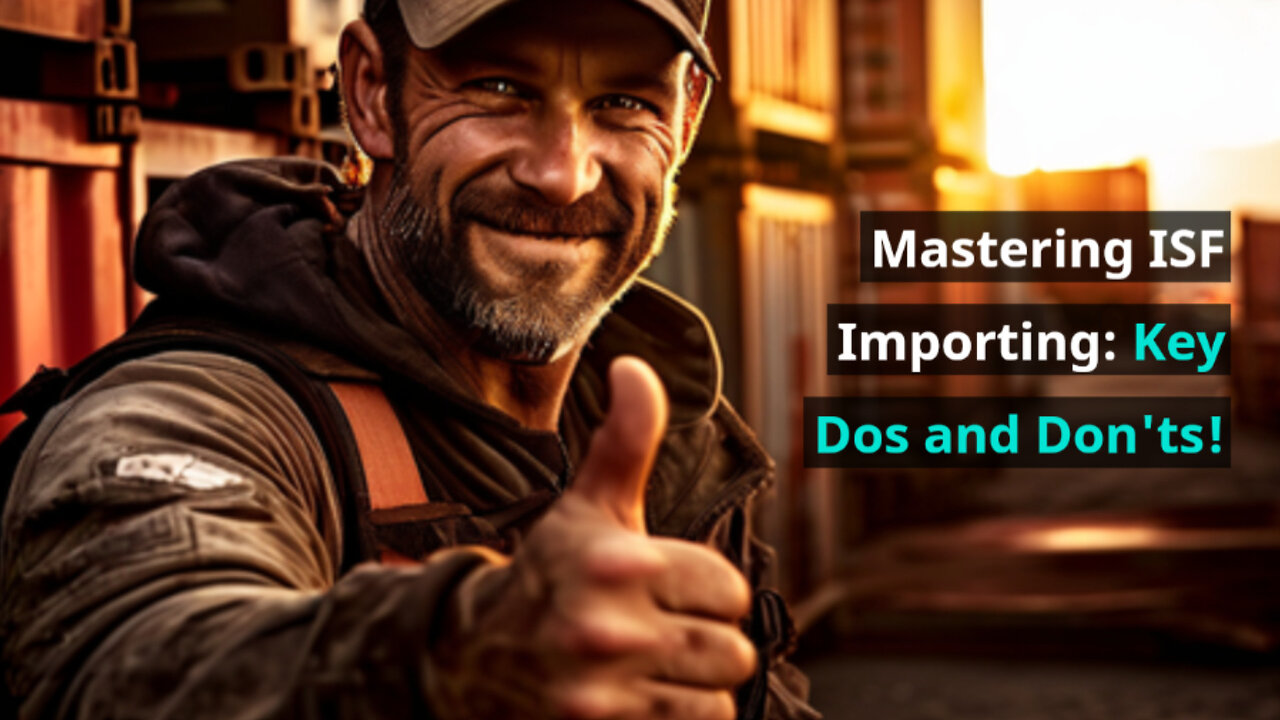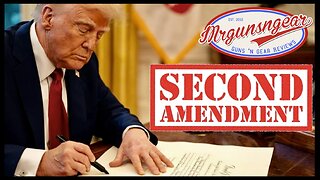Premium Only Content

Mastering ISF Importing: Your Guide to Customs Brokerage and Compliance
ISF Checklist || 805-970-7918 || contact@isfchecklist.com || www.isfchecklist.com
In today's video, we discussed the responsibilities of ISF importers and provided some important do's and don'ts. Importing goods into a country requires a thorough understanding of the customs process, which is where a customs broker comes in. A customs broker is a professional who facilitates the import and export of goods, ensuring compliance with customs regulations and smooth trade.
Another key concept we covered is customs bonds. Customs bonds are a financial guarantee that importers must obtain as part of the customs clearance process. This bond serves as a commitment from the importer to comply with all necessary customs regulations and pay any applicable duties and taxes.
One of the major responsibilities of importers is filing an Importer Security Filing (ISF). This is a requirement by the US Customs and Border Protection (CBP) for shipments coming into the United States. The ISF must be filed at least 24 hours before the goods are loaded onto a vessel destined for the US. Accuracy and completeness of the ISF are crucial to avoid penalties or delays during customs clearance.
Importers must also ensure compliance with all customs regulations, including accurate and complete documentation, correct classification of goods, adherence to import restrictions and quotas, and compliance with any applicable trade agreements. Failure to comply with customs regulations can result in financial penalties, delays in customs clearance, and even seizure of goods. Working closely with a customs broker is essential to ensure compliance at every stage of the import process.
Moving on to the do's and don'ts for ISF importers, we provided some important guidelines. It is crucial for importers to be proactive and file the ISF well in advance to avoid any last-minute issues. Double-checking and reviewing the information provided in the ISF is also necessary to maintain accuracy and avoid penalties or delays.
Importers must never ignore or underestimate the importance of customs compliance. Open communication with the customs broker, timely provision of required information, and staying updated with changes in customs regulations are important practices to follow. Making false or incomplete declarations should be avoided at all costs, as this can have serious consequences for both the importer and their business.
In conclusion, it is vital for ISF importers to understand and fulfill their responsibilities. By working closely with a trusted customs broker, ensuring compliance with regulations, and adopting a proactive approach, importers can navigate the complexities of international trade successfully. Thank you for watching, and don't forget to subscribe to our channel for more informative videos on customs brokerage and international trade.
#usimportbond #isfcustomsbroker #uscustomsclearing #isfentry
Video Disclaimer Here: This video is purely educational and has no ties with the US government.
00:45 - Customs Broker
01:02 - Customs Bond
01:36 - Importer Security Filing (ISF)
02:49 - Do's and Dont's of ISF Importing
-
 LIVE
LIVE
illyesjr
3 hours agoSuper Bowl LIX Watch Along!
1,764 watching -
 3:25:11
3:25:11
Akademiks
4 hours agoPRE SUPERBOWL STREAM! Will Kendrick END Drake Career Tonight? Will Drake and PND outsell DOT?
59.8K6 -
 LIVE
LIVE
Vigilant News Network
5 hours agoEfforts to BAN Dangerous COVID Jabs Underway | Media Blackout
1,641 watching -
 1:49:02
1:49:02
VIVA TV
3 days agoWhat Is The Most Shocking Sports Story Of The 2000's? (The Bracket, Vol. 161)
81.8K13 -
 3:07:41
3:07:41
TheNateVibez
6 hours ago#1 Streamer in Kentucky👀 - T-800 Road to Rank Domination✌ - ArmyVet🫡
55.5K1 -
 4:03:05
4:03:05
EXPBLESS
6 hours agoHAPPY FORTNITE SUB SUNDAY - SUB GOAL {8-50} #RUMBLEGAMING
42.4K2 -
 9:19
9:19
VSiNLive
1 day agoYou MUST Consider These 3-LEG PARLAYS for Super Bowl LIX!
45.3K1 -
 9:21:08
9:21:08
Scottish Viking Gaming
9 hours ago💚Rumble :|: Sunday Funday :|: If you can't Beat them...EAT THEM!!
60.1K2 -
 1:46:47
1:46:47
Game On!
1 day ago $14.04 earnedExpert Super Bowl LIX Picks, Preview, and Best Bets!
142K16 -
 36:50
36:50
Mrgunsngear
1 day ago $26.80 earnedPresident Trump's Executive Order To The ATF: This Could Be Huge!
120K72